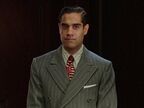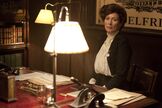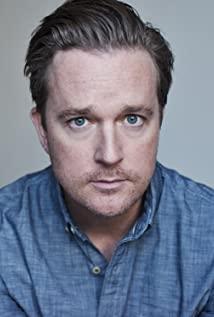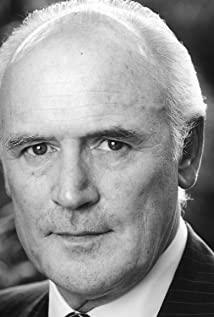At the age of 10, Harry began to deliver newspapers to the community to subsidize the family. At the age of 12, he worked odd jobs in a dry goods store, and invested the saved wages in a campus publication founded by his classmates, sharing the advertising income with other creators. However, the efforts of a thin boy always seem powerless in the adult world. At the age of 14, he dropped out of school and began to search for a way to survive in various small banks, grocery stores, bookstores, and insurance companies. Finally, at the age of 20, his life took a turn - he got a letter of recommendation to Marshall Field.
Who is Marshall Field? This man was also displaced in his early years, and even worked odd jobs in a dry goods store. In 1876, 18 years older than Harry, he was a partner at Marshall Field and Company (later acquired by Macy's), a well-known department store chain in Chicago. I'm sure he must have smelled the same kind when he met Harry, and he might have smiled at the time. That was Hank Reardon's smile at Dagny in "Atlas Shrugged", the understanding and hatred among the promoters of the capitalist world.
In the TV series "Mr Selfridges", the entire staff of Selfridges, the first modern department store on London's Oxford Street, gather to listen to their boss - a small man with a black face The moustache, the middle-aged man who usually gives instructions with a loud laugh - lectures. In their impression, bosses are rarely so serious. Harry Gordon Selfridge said loudly: "As you all know, I came up from the bottom. I was a warehouse manager at Marshall Field and Company, and my boss gave me the key to open the mall in the morning. Let me be the first person to enter the mall every day, that day I will never forget, because I know he trusts me, trust! How precious! This is what you expect from me, all I ask of you!… ...If you are in trouble, come to the office upstairs and find me, don't steal from me!"
Harry, Mr Selfridges, hated stealing, and sloppy, alcoholic, rascal, procrastination, cringe, and all the vices of the lower classes. He vowed to turn the high-end department store named after his own surname into a myth of consumerism, enshrining the lavish and delightful Asgard he never even imagined as a child. To this end, he has achieved many firsts in the history of the world's retail industry: the first time to put more than 100 pages of opening advertisements in 18 media; the first time to install direct elevators, lounges, libraries, coffee shops, emergency services in shopping malls Room, roof garden and free toilets; the first time to attract customers with well-designed, luxurious decoration and brilliant lighting window display products; the first time to display the latest technology products of the era, such as monoplane propeller planes, mechanical scanning TV sets, etc. In the lobby for customers to admire and admire, the first Christmas discount season, end of season discount season and specials section... Selfridges also boldly puts expensive cosmetics, perfumes, skin care products and jewelry accessories in the mall The front of the lobby on the first floor (ground floor) is facing the female customers who have just entered the door, allowing them to see the most dreamy vision that the commodity world can give them - becoming more beautiful, younger and more elegant to be happier. This is the norm in almost every major department store in modern times, but 100 years ago it was unprecedentedly daring. Selfridges is meticulous to customers, and he never takes his employees lightly. He is said to be able to remember the names of every employee from the cargo hold to the counter, generously giving them raises and bonuses, and encouraging them to come to his office to discuss their difficulties and confusion. Harry had also worked as a clerk in a small shop, and he knew how to seize the loyalty of his former self.
Mr Selfridges is a capitalist, not a philanthropist. His "goodwill" towards customers and employees has paid off handsomely. Selfridges quickly became a miracle in London and Britain. Not only does it allow customers to buy what they need, but it also makes them realize that they want more, more, even more (from Shopping, Seduction & Mr Selfridge by Lindy Woodhead). Mr. Selfridges would never have imagined that in a few decades, the British and American circles would enter into a collective critique of consumerism and the commodity society, and the splendid department stores would become the best proof of the original sin of consumption temptation and social class differentiation. In his personal view, shopping means abundance, pleasure and even happiness. He has no interest in feminism, ideology or politics: "If you can't capture the customer's vision and provide a unique and beautiful experience, what's the point of all this?"
Chinese and foreign TV dramas are suspicious of the treatment of history. In my opinion, "Mr Selfridges" could be renamed "Grey's Anatomy: Crossing the Department Store". The gossip about Selfridges himself and his family, partners, employees, and collaborators is rendered meticulously in the play. But at least, Harry in the play retains some of the characteristics of the capital adventurer from a century ago: bold enough to be afraid of himself, naive enough to hurt everyone he loves, and selfish, blatantly selfish, For him it was as indispensable a quality as self-esteem. Selfishness is the original driver of all capital accumulation and business ventures, a world in which selfishness leads to well-being.
Finally, let's talk about the ending of that little boy Harry. At the age of 50, he came to the UK with his noble wife, lovely children and hardworking mother, and created a brilliant career. However, life is always impermanent, and the war of World War II made him frustrated again and again. London was the hardest hit by air raids that year. He had to watch Asgard, which he built with his own hands, being blown to pieces again and again. With his family by his side, he might be able to support himself to get back on his feet. However, his wife and mother died before the war. He began to drink, gamble, take care of various mistresses, and inevitably went bankrupt, and was finally kicked out of his department store to make a living on the famous London ring bus. He finally passed away tragically at the age of 91, and was buried beside his mother and wife with his selfish Bible.
View more about Mr Selfridge reviews










